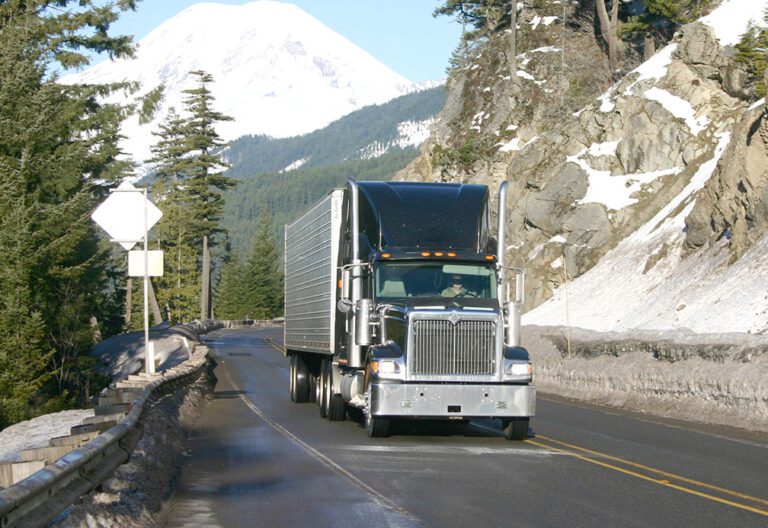Time marches on and, apparently, so does inflation. Unfortunately, while costs continue to escalate, the freight rates needed to keep up aren’t materializing.
In addition, continuing discussion about a coming recession isn’t inspiring confidence. On Dec. 14, the Federal Reserve raised its benchmark interest rate for the seventh time in 2022, this time by a mere half percent. The “good” news is that the increase was only 0.5% instead of the .75% amount of the previous four jumps, purportedly indicating that inflation might be coming under control.
In the short term, it means loans for equipment purchases or repairs and credit-card fees will cost more. It also can impact freight levels by helping depress purchases of new homes and automobiles — two factors that contribute large amounts of freight for truckers.
DAT Freight & Analytics, which operates the DAT One truckload freight marketplace, reported that truckload volume for dry van freight decreased 9.5% in November 2022 from October levels and was 4.4% lower than November 2021 levels. Refrigerated freight levels were down 4.5% and down 5% year over year. Flatbed loads showed similar results, declining 11% from October, but the rates were actually 13% higher than November of 2021 in a departure from the other trucking modes.
Part of the reason the declines weren’t worse is that trucking benefited from the threatened rail strike that didn’t happen in early December.
“There was seasonality in the van and reefer markets around the Thanksgiving holiday, but also a surge in volume in major intermodal ramp markets like Los Angeles, Chicago and Kansas City,” said Ken Adamo, chief of analytics at DAT. “Shippers used the spot market to reduce the risk of disruptions ahead of a potential rail strike.”
Rates didn’t fare any better, according to DAT. Average van rates of $2.38 per mile were down 55 cents from November 2021, while refrigerated rates of $2.80 per mile on the average were 65 cents lower than in November 2021. The average flatbed rate of $2.82 per mile was down 24 cents from a year ago.
DAT report noted the difference between spot and contract rates widened in November as spot rates continued to fall faster than contracted rates.
ACT Research’s For-Hire Trucking Index for October, released Nov. 28, indicated the “bottom” for freight rates may soon be at hand.
“The seeds of the next tighter environment are being sown as rising costs and falling spot rates threaten the viability of the significant small feet capacity which has recently entered the industry,” said Tim Denoyer, vice president and senior analyst for ACT. “For the mostly larger fleets in our survey, capacity growth has slowed for three straight months. By our estimates, spot rates are further below costs than ever before, which could shorten the bottoming process.”
Denoyer was referring to the record numbers of new carrier registrations that occurred in late 2020 into 2021 as more drivers bought trucks to take advantage of rising freight rates. Many of those small business profited while rates were high but began to struggle when rates fell. As those carriers go out of business, there are fewer trucks left to haul available freight, allowing those that remain to push rates higher.
“We believe the bottoming process has begun, and it’s possible that supply factors — including tight diesel inventories — could shorten the downturn,” Denoyer said.
The Cass Freight Index for shipments for November showed that numbers fell 1.9% in November and were 0.4% lower than November 2021. Expenditures for shipments remain higher due to rate increases realized last year. The Cass Index measures freight volumes and shipping expenditures submitted by Cass clients and represent multiple modes of transportation, including trucking, rail, air, ship and pipeline among others.
Business owners who are concerned about inflation and the potential for recession might be surprised to learn that some economists think we’re already in one, while others expect a recession to arrive early in 2023. Opinions vary on exactly what constitutes a recession as well as on when the next one will arrive or how severe it will be.
Many economists are using the recently coined term “pasta-bowl” recession to describe the expected impact. When drawn on a graph, economic indicators like the gross domestic product (GDP) are expected to decline on a gradual slope, flatten out and then gradually increase in a shape reminiscent of a shallow bowl used for serving pasta.
This time around, however, even the economists don’t agree. In a survey published by the Federal Reserve Bank of Philadelphia, the Fourth Quarter 2022 Survey of Professional Forecasters predicted the GDP would grow by 1% in the fourth quarter, but more than a third of industry respondents said the economy would contract. For the first quarter of 2023, 47.2% of respondents predict negative growth, and the group was split roughly 50-50 on whether the economy would grow or decline in the second quarter.
Clearly, the coming recession — if there is one — is different from past downturns in that the indicators aren’t clearly defined. Regardless of the terminology, however, controlling expenses is the best course of action for small trucking businesses to survive the upcoming turbulence.
Cliff Abbott is an experienced commercial vehicle driver and owner-operator who still holds a CDL in his home state of Alabama. In nearly 40 years in trucking, he’s been an instructor and trainer and has managed safety and recruiting operations for several carriers. Having never lost his love of the road, Cliff has written a book and hundreds of songs and has been writing for The Trucker for more than a decade.











